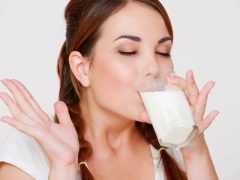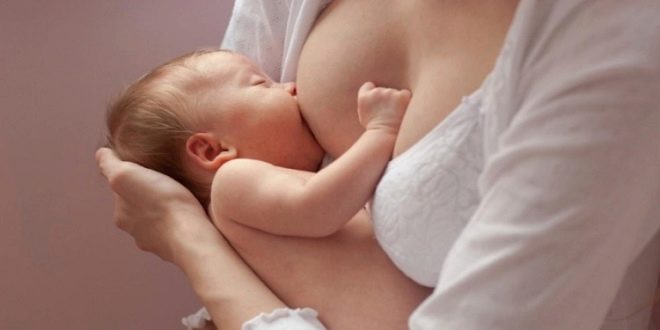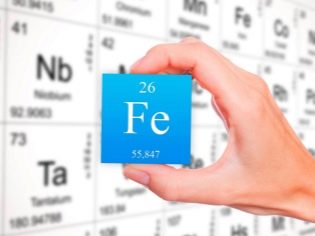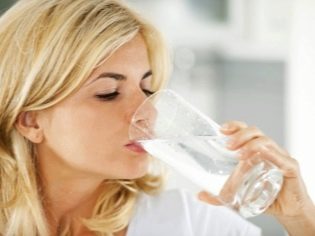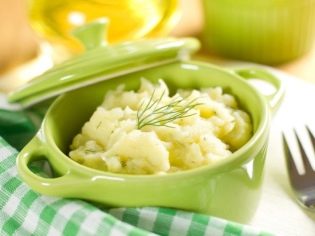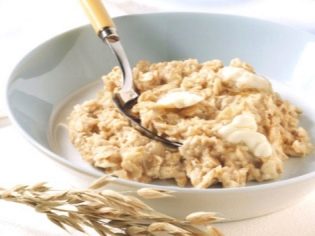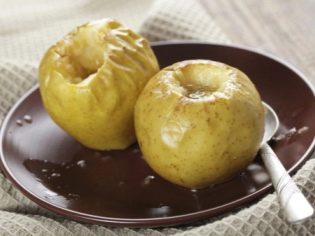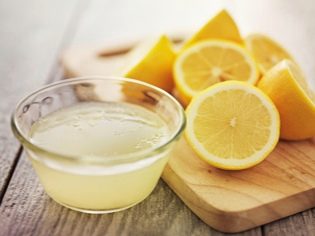What can a nursing mother eat in the first days after birth?
Proper nutrition after childbirth - the key to a successful and rapid recovery and the establishment of lactation. However, not everyone knows how and what you can eat during the first few days after the birth of the child.
Why is it important to stick to a diet?
Recovery after childbirth, in whatever way they are carried out, requires considerable energy costs. A woman has lost a certain amount of blood, she is tired, and the beginning processes of activating the production of breast milk should be provided with a certain energy reserve of the body. Replenish energy will help proper nutrition.
But it is impossible to eat everything in a row for the reason that during the birth a large bowel load was experienced, and his work was temporarily disrupted. Proper diet will help restore its normal functioning faster, avoid constipation. This is especially important for those who have stitched - women after cesarean section, episiotomy.
With seams it is difficult and unpleasant to push, besides there is a risk of seam divergence. Given this, defecation should be as soft and painless as possible. To achieve this, consuming everything that you want, will not work.
Blood loss naturally leads to the development of functional postpartum anemia. Iron deficiency will also compensate for a reasonable diet.
If during the first two days the child consumes mainly colostrum, then on the third day comes not transitional, but real breast milk. In its composition will certainly be reflected all that a woman eats.. Now the new mother is responsible not only for her own digestion and well-being, but also for her child’s well-being and metabolism.
Of course, the diet for a woman in labor after a cesarean section differs from the recommendations for a woman who gave birth in a physiological way through natural ways.
But for all there are several principles of proper postpartum diet:
- security;
- diversity;
- correct drinking regime.
Foods that do not contain substances capable of causing allergies to a woman or a newborn, as well as aromatic additives and various preservatives are considered safe. It is worth noting that food should not contribute to the increased production of gases in the intestines. A varied diet is the diet, which contains all the necessary substances, vitamins and minerals, as well as fats, proteins and carbohydrates. Calorie food for nursing moms preferred high.
Particular attention is paid to the drinking regime, especially in the first two days. Blood loss is a condition that needs compensation. For this reason it is important to drink at least one and a half liters of fluid on the first and second dayand then, when milk comes, limit the fluid to 800 ml per day. This is important in order not to create prerequisites for enhanced lactation, which can cause lactostasis and inflammation of the mammary ducts.
Food in the hospital is fully consistent with these three principles. Everything that relatives bring to the maternity hospital must also meet the basic requirements.
Diet after physiological generic process
Whether it is possible to eat immediately after childbirth, which foods to eat, depends on how the delivery went.If they were light, then a woman can be eaten in a few hours, not limiting herself too much, but within the framework of permitted products, which can be found below.
Difficult childbirth, accompanied by ruptures or episiotomy, large blood loss, impose some restrictions on the nutrition of the puerperal. It is not worth pushing with the seams in the perineum, otherwise there is a risk of damaging their integrity, so not all can be eaten. Preferred are mashed potatoes and sparse porridge mash. Any solid and thick food can cause constipation.
When the birth is over, there is an intensive process of uterine contraction. To the reproductive organ is not interfered with swollen bowel loops, important not to eat anything that can lead to fermentation in the intestines.
In order not to strain the already functionally suffering intestine, it is impossible to take raw vegetables and fruits in the early period (up to 10 days). Too fat food increases the fat content of breast milk, and the baby does not yet have the necessary stock of enzymes for easy absorption of fats.
Everything Products 3-4 days after the birth process, you need to eat only heat-treated. Porridges, mashed potatoes, soups, baked apples, pears, lean meats, fish, cottage cheese and kefir are allowed. Raw vegetables and fruits are recommended to be gradually added to the diet not earlier than after 30 days.when the baby’s digestive system is somewhat adaptable and strong.
The main rule is nothing fat, fried and smoked. All food needs to be cooked boiled, stewed, baked or steamed..
If the puerperal does not know whether the spouse is allergic to any products, then it's time to talk with him and his mother on this topic. Children quite often inherit allergic reactions and a predisposition to negative reactions of the body to certain substances. To protect the child, it is important to consider what products should be excluded due to allergies of both parents.
Meals should be arranged in such a way so that a woman can eat at least six times a day, but in small portions - within 400 g at one time. Such a regime will not only contribute to the establishment of breastfeeding, but will also be an excellent platform for more quickly getting rid of extra pounds.
New products are recommended to add one per day and in small quantities. This is important so that in time you can notice possible allergic reactions in the infant. If there is no rash or digestive problems in infants in 24 hours, then such a test product can be increased in dosage. If allergies are manifested, then it must be deleted.
Diet after surgery
Women who give birth operatively will have to limit their appetites to a greater degree. Surgery to open the abdominal cavity requires a more gentle and long-term recovery. We can not ignore the effect of drugs that were used to provide anesthesia. Their action continues for several days after the birth of the baby.
The first day of the COP is recommended to starve. An enema was done before the operation, so the intestine needs to remain empty for at least another 24 hours in order not to squeeze the sewn uterus.
Constipation is also dangerous, therefore, it is necessary to gradually and smoothly “start” the functioning of the intestine after the operation. The first 24 hours you can drink in the amount of not more than 1.5 liters of liquidclean water, for example. You can also dilute it with a few drops of lemon juice. By the end of the day, it is recommended to eat a low-fat broth prepared from beef or chicken breast without spices, with a negligible amount of salt or without it, in two broths.
The next day, white croutons can be added to the broth, baked in the oven from the most ordinary white bread, not containing spices. On the second day, food becomes more diverse due to the use of mashed potatoes without the use of butter and milk, as well as tea or compote.By the end of the second day, it is usually allowed to eat meat in cans for baby food.
After two days you can eat porridge, but it must be cooked in water, without oil. You can not eat rice and semolina. You can add steam burgers and kefir. On the fourth day, the puerperal, according to the rules of clinical nutrition, can move to the general menu and there is something that is permitted to all nursing women..
Grocery list
Catering table in the first 10 days
Recommended | Prohibited |
kefir (low-fat), cottage cheese | sour cream, whole milk, butter, yoghurts |
oatmeal, millet porridge and buckwheat (cooked in water) | rice, barley, semolina, all milk porridges |
wheat crackers | bread, loaves, dry biscuits and other pastries |
vegetable oil (olive, sunflower, linseed) without heating and boiling, raw in the amount of 10 ml per day | butter, margarine, spreads |
veal, beef, chicken, turkey, rabbit meat (lean meat) | lamb, pork, goose, duck |
hake, cod, pollock (low-fat fish) | mackerel, herring and other fatty fish |
baked green apples, apple compote | all raw fruits |
potatoes, carrots, beets, zucchini (processed thermally) | all raw vegetables |
tea, homemade juice, diluted with water, compotes, non-carbonated mineral water | all carbonated drinks, store juices, cocoa, coffee and alcoholic beverages |
small amount of condensed milk when added to tea | all store sweets, chocolate, cakes, pastries, sweets, marmalade |
For some products and product categories from the table above, the ban is lifted after 1 month. Prohibited will be processed cheese, any canned food, fast food, sausages and sausages, ham, ketchup and mayonnaise, spices, mushrooms, jam and jams, citrus fruits.
It is worth noting that you can not eat foods that increase gas formation. This includes all legumes, yeast and the products in which they are contained, including pastries. You also can not drink kvass, eat grapes, white cabbage.
Useful tips
The first days after birth are very important for the formation of the baby’s immunity, for its adaptation, so it’s not worthwhile for the child to complicate an already difficult task by changing the chemical composition of milk with his own nutrition for the worse. Proper milk quality is an important factor in the full development of the infant in the first 10-14 days after birth. In the first two weeks, the issues of proper organization of their own food nursing mom should be given as much attention as possible.
First of all, you need to understand that you can not starvebecause it does not contribute to losing weight or normal lactation. Also you should not sit on monodiets, prescribing fasting days on one product. With this diet, the mother will feel hungry and unhappy, and the child will not receive all the necessary substances for him from breast milk.
It is necessary to think about the diet for a few days ahead - this will help in the purchase of necessary products and facilitate the task of choosing food for a specific breakfast or lunch.
All products for a nursing mother who gave birth a few days ago should be exclusively high-quality, fresh, from proven manufacturers. For this reason, it is not worth buying cottage cheese for farmers from the dacha of farmers - it is better to take a box of cottage cheese at the store, since gardeners at roadside and green summer residences are not responsible for the freshness, quality and health standards.
After discharge from the maternity hospital, it is important to immediately plan your meals for the coming days.
All that is planned to eat per day, should be divided into 6 receptions. It should be borne in mind that in each of them must be and proteins, and fats, and carbohydrates. Also worth paying attention to the content of vitamins and minerals.
There is no need to overload the stomach before night rest - the last snack in the day should be made light, for example, only cottage cheese or only fruit.More carbohydrates (porridge) should be consumed in the morning, and after lunch and in the evening try to eat more protein.
The fact that you can eat a nursing mother in the first days after birth, see the next video.
